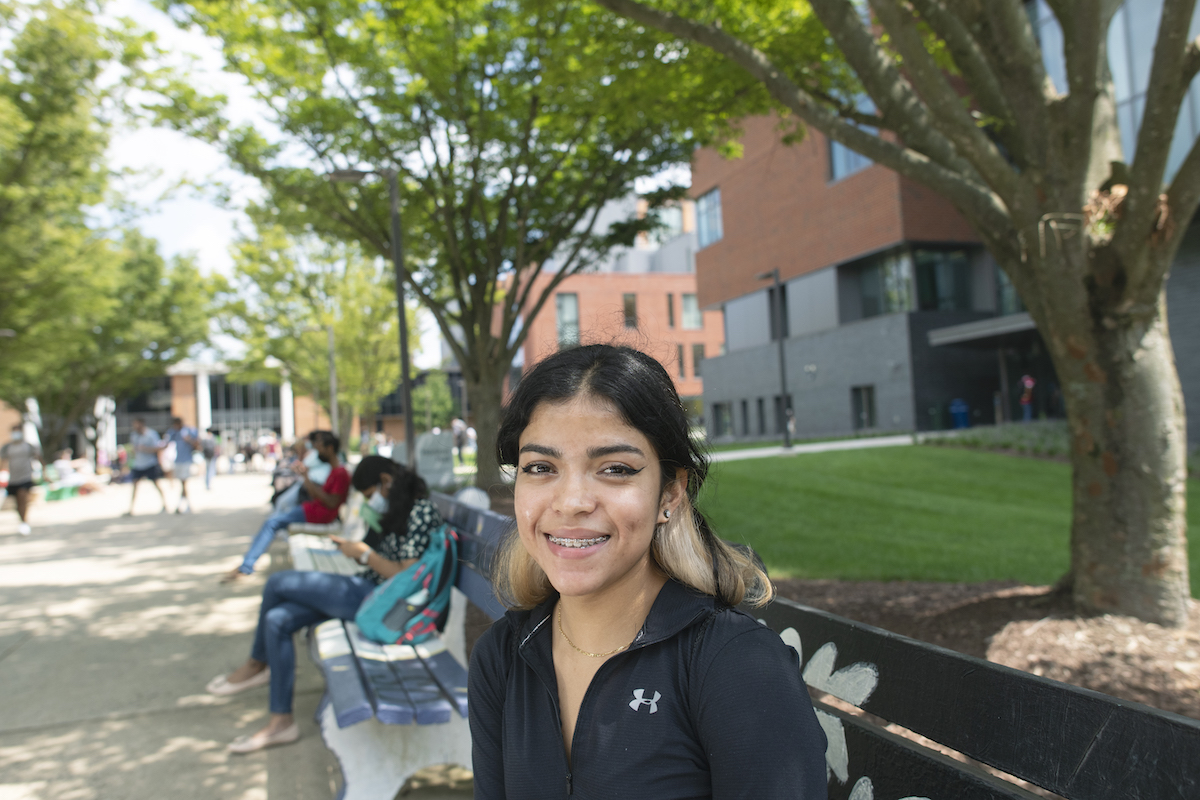
Hazel Cartagena, an incoming freshman at George Mason University, has already taken to heart a piece of advice she received from the university.
Well, not from the university specifically, but from some of the faculty she met through Mason’s Early Identification Program (EIP).
“They were really supportive and giving advice to not be scared and to take risks,” Cartagena said, “especially with classes.”
So Cartagena decided to follow her love of math and changed her major to accounting.
“I still don’t know much about accounting, so it’s going to be kind of new,” she said. “But I want to try it. I’ve always been into numbers.”
As a first-generation student, Cartagena’s story is pure Mason.
After coming to the United States from El Salvador to join her mother late in 2010, she enrolled in the EIP program; was an academic star at Freedom High School in Woodbridge, Virginia; earned a University Scholarship, which pays for four years of tuition; and is in Mason’s Honors College.
It all seems like a whirlwind, Cartagena said. And while she relishes the opportunity, she admitted to a bit of pressure because of the high expectations from her family.
“It’s an opportunity to move forward and better yourself,” she said. “I’m sure I can get through it and do good.”
Jhessyka Vargas Ferrufino believes that as well.
As assistant director for college readiness in the EIP program, Vargas Ferrufino worked with Cartagena during her senior year at Freedom High and praised Cartagena’s ability to juggle online learning, work, and family responsibilities.
“Her senior year has shown that she has the strength to make difficult decisions for the betterment of her education and her family,” said Vargas Ferrufino, BSW ’15; MSW ’18, who also came to study and work at Mason through EIP. “I’m excited to see what she will do at Mason.”
Cartagena said she has a good start thanks to EIP, which introduced her to mentors and faculty members she believes will be part of her network even after she graduates.
Just as important, though, were introductions to other first-generation students and students of different backgrounds who would join her at what is already is the most diverse public research university in Virginia.
She called it a built-in community.
“I remember seeing a lot of people from different places, different countries, and, at least for me, that helps me,” Cartagena said. “It encourages me. All these people from all these places are trying to do their best and put in that effort to have something better for themselves. For me, it is really inspiring.”
